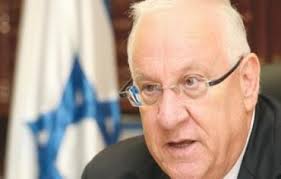 Israel’s parliament on Tuesday chose Reuven Rivlin, a veteran politician and supporter of the Jewish settlement movement, as the country’s next president, putting a man opposed to the creation of a Palestinian state into the ceremonial but largely influential post.
Israel’s parliament on Tuesday chose Reuven Rivlin, a veteran politician and supporter of the Jewish settlement movement, as the country’s next president, putting a man opposed to the creation of a Palestinian state into the ceremonial but largely influential post.
Rivlin, a stalwart in the governing Likud Party, now faces the difficult task of succeeding Shimon Peres, a Nobel peace laureate who became an all-star on the international stage.
While the presidency is largely ceremonial, Rivlin’s political views could be a liability when he represents the country overseas. His opposition to Palestinian independence puts him at odds with the international community and Israel’s own prime minister.
Instead, he has been a supporter of Jewish settlements in occupied lands claimed by the Palestinians and proposed a special union with the Palestinians in which Jews and Arabs would hold common citizenship but vote for separate parliaments.
The president is meant to serve as a unifying figure and moral compass for the country, and Rivlin has said that in contrast to Peres, he would focus on domestic affairs if selected to the post.
“I think the people’s will was manifested,” Rivlin said after Tuesday’s vote. He dismissed speculation that he might be upset at Prime Minister Benjamin Netanyahu, who tried to block his candidacy, saying he was “not angry at anyone.”
Rivlin, 74, currently a lawmaker for the right-wing Likud, has previously served as speaker of parliament and as a Cabinet minister. He defeated Meir Sheetrit, another veteran politician, 63 to 53, in a secret runoff ballot. Three other candidates were eliminated in a first round of voting in the 120-member parliament earlier in the day.
Rivlin will have big shoes to fill, after Peres, 90, steps down. Peres, whose political career stretches back decades and who has been an outspoken proponent of peace with the Palestinians, brought the office international renown. He also restored honor to the position, which was tarnished after his predecessor, Moshe Katsav, was forced to step down by a sex scandal. Katsav is now in prison after being convicted of rape.
The vote capped a nasty presidential campaign that saw mudslinging, political intrigue and scandals that forced two hopefuls to pull out of the running.
Netanyahu’s public standing also has taken a hit during the campaign due to his attempts to shape the race and block Rivlin’s candidacy. He and Rivlin are longtime rivals in the Likud.
While most political power is held by the prime minister, the president plays several key roles in Israel.
Most critically, the president chooses a member of parliament, or Knesset, to form a majority coalition after elections. This has usually been the leader of the party with the most seats in parliament. But with the rise of a number of midsize parties in parliament, the next president could theoretically have more influence over choosing the country’s prime minister.
The other candidates included Dalia Dorner, a former Supreme Court judge. Former parliamentary speaker Dalia Itzik and Nobel Prize in Chemistry winner Dan Shechtman also vied for the job.
ABC/AP

Leave a Reply
You must be logged in to post a comment.